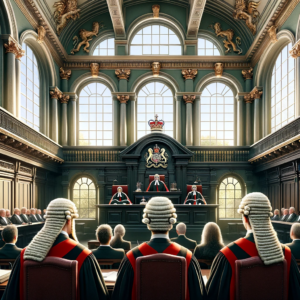
In a significant decision dated December 6, 2023 ([2023] EWCA Civ 1451 Case No: CA-2023-000692), the Court of Appeal of England and Wales has given a new interpretation of legal acceptance and reiterates the importance of monitoring trademark usage to avoid acquiescence.
Sommaire
Context: The Dual Use of the Acronym ICE
The case involved Industrial Cleaning Equipment, a British company, which sued Intelligent Cleaning Equipment Holdings, a Chinese manufacturer, for using the acronym ICE and several similar logos. Both companies had trademarks registered in the UK. The Claimant registered its logo in 2016, while the Defendant had international registrations dating back to 2015, which were recognized in the EU and subsequently in the UK following Brexit.
First instance Judgment
At first instance, the Claimant accused the Defendant of trademark infringement and passing off and the defense of statutory acquiescence was rejected by the judge.
But What is acquiescence? Acquiescence in trademark law is when a trademark holder tolerates unauthorized use of their trademark over an extended period, potentially leading to a loss of rights to challenge this use later.
In this case, it was accepted that the Claimant had knowledge of use of the Defendants’ UKTMs in the UK since around July 2014, but denied having any knowledge of registration of such marks until July 2019, when the Claimant’s solicitors sent the Defendants a letter before claim alleging trade mark infringement and passing off.
Proceedings were issued on 24 May 2021, and the judge at first instance found in favor of the Claimant. The judge held that the defense of statutory acquiescence raised by the Defendants under section 48 of the Trade Marks Act 1994 (TMA 1994), could not succeed because the five-year period only starts to run when the earlier trade mark owner has knowledge of both the use of the later trade mark, and of its registration.
The decision hinged on the EU Court of Justice’s ruling in the Budvar case (C-482/09 – Budějovický Budvar), which required knowledge of both the use and registration of the later trademark for acquiescence.
The Appeal and its groundbreaking decision
The Defendants appealed on two main grounds. Firstly, they argued that knowledge of the registration of the later trademark was unnecessary for acquiescence. Secondly, they claimed that the relevant date for calculating acquiescence should be the international registration date.
A New Interpretation of Acquiescence
The Court of Appeal conducted an in-depth analysis of the principle of statutory acquiescence, particularly referring to the Budvar decision and other EU case law.
It found that the Budvar decision was an isolated judgment and that EU courts, including the EUIPO Board of Appeal and the General Court, had interpreted the legislation differently. These interpretations focused on the requirement of a registered mark being used for five years, without necessitating knowledge of its registration.
Consequently, the Court of Appeal departed from Budvar, holding that statutory acquiescence only requires knowledge of the use of a later mark after its registration.
However, regarding the start date for calculating acquiescence, the Court sided with the Claimant, marking the date as either the acceptance by the EUIPO or the second republication date, not the WIPO registration date. Unfortunately for the Defendants, they were therefore still ultimately unsuccessful in their appeal.
The Court concluded that acquiescence only requires knowledge of the use of the later trademark after its registration, not knowledge of the registration itself.
Conclusion on the Importance of Monitoring Trademarks
This decision marks a significant shift in UK trademark law, realigning it with the broader trends in EU General Court and EUIPO case law. It underscores the importance for trademark owners to monitor not just the use but also the registration of marks that might infringe their rights. Regular checks on trademark registries are crucial to avoid unintentional acquiescence.
The ruling also highlights the nuanced distinction between use and registration in trademark law. For practitioners, this decision emphasizes the need for vigilance and proactive strategies in trademark monitoring and enforcement.
By clarifying the requirements for statutory acquiescence, it offers guidance and a renewed understanding for trademark practitioners and owners.

